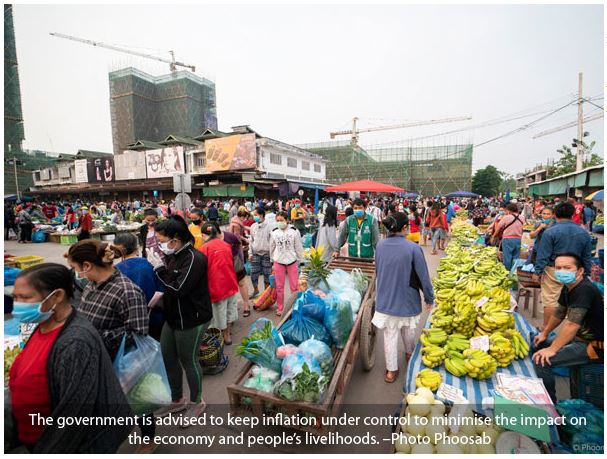Laos: NA urges govt to address economic issues
Although Laos has so far dodged severe health impacts from the Covid-19 pandemic, the government has been urged to work harder to address the resulting economic issues.
Vice President of the National Assembly (NA), Dr Bounpone Bouttanavong, told the ongoing Assembly session this week that the government had done a good job in containing the spread of the virus.
But it was the opinion of the National Assembly, which oversees the performance of the executive body, that the government should do more to achieve the goals approved by the Assembly.
“The government needs to strengthen its efforts to restore the economy in the wake of the Covid crisis, particularly the service sector,” Dr Bounpone said.
“Goals in poverty reduction and rural development will not be achieved this year. Nine out of 15 goals laid down for the education and sports sector will not be accomplished. Seven out of 11 goals in the health sector and 3 out of 4 goals in the information, culture and tourism sector will not be realised,” he added.
The NA acknowledged that the economy, which was already vulnerable, had been further weakened by the pandemic and flooding this year, resulting in more financial difficulties.
Revenue shortfall could lead to further budgetary tension and fiscal deficit is on the rise, while depreciation of the kip is affecting the country’s debt service capability.
The NA found that domestic production was not as strong as it should be and said the government must do more to boost local production by making greater use of science and technology in production processes, as this would reduce the need for imports.
Dr Bounpone said the NA congratulated the government on maintaining political stability and social order, and noted that the construction of several mega projects was progressing as planned. These are the Laos-China railway, Vientiane-Vangvieng expressway, mining, and operations in special economic zones.
In 2021, government bodies are instructed to analyse policies and strategies and determine ways to overcome economic challenges, looking at how to turn the crisis into opportunities to drive economic growth.
The government was advised to better regulate currency exchange rates and reduce the gap between the parallel and official market. It is also essential to keep inflation under control to minimise the impact on the economy and people’s livelihoods.
Decisions concerning state-funded projects should be based on the budget available in order to prevent the country going further into debt.
The National Assembly also asked the government to create favourable conditions for SMEs in the area of agricultural production, especially enabling them to have easier access to funding.
Meanwhile, the construction of roads and railways must be made in parallel with efforts to boost agricultural production and the processing industry so that more goods can be exported.
The government was also advised to strongly promote domestic tourism by encouraging more Lao people to travel within the country and so help strengthen local economies.
The revival of tourism would help the economy to recover in the post-pandemic period.
Dr Bounpone said it was necessary to develop a skilled workforce that would meet the country’s needs and the demands of the job market. At present, insufficient skilled workers are available.
He also advised the government to clearly define new sources of income and use electronic systems to boost national revenue in the near future.
Source: http://www.vientianetimes.org.la/freeContent/FreeConten_NA211.php


 Thailand
Thailand




